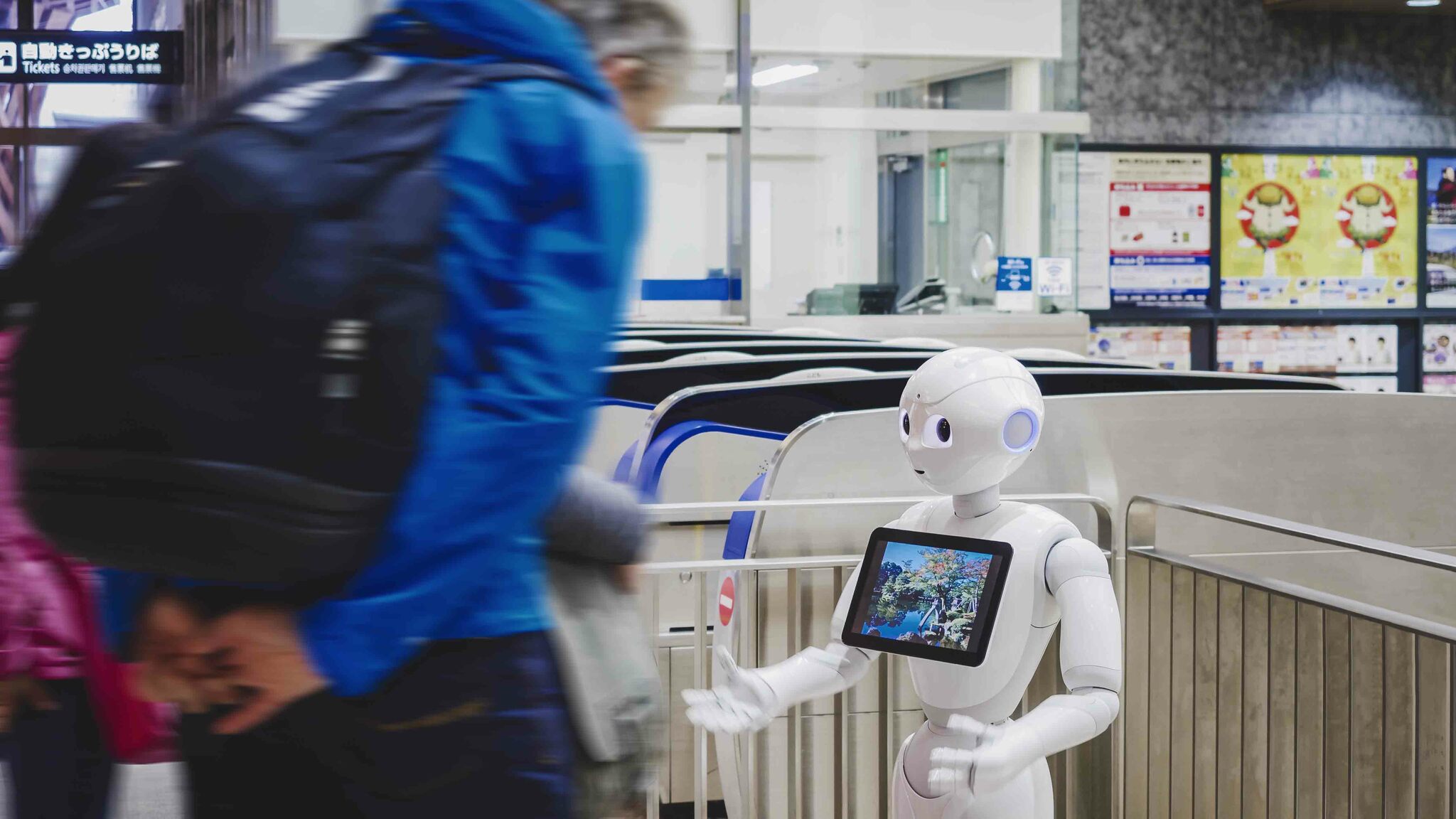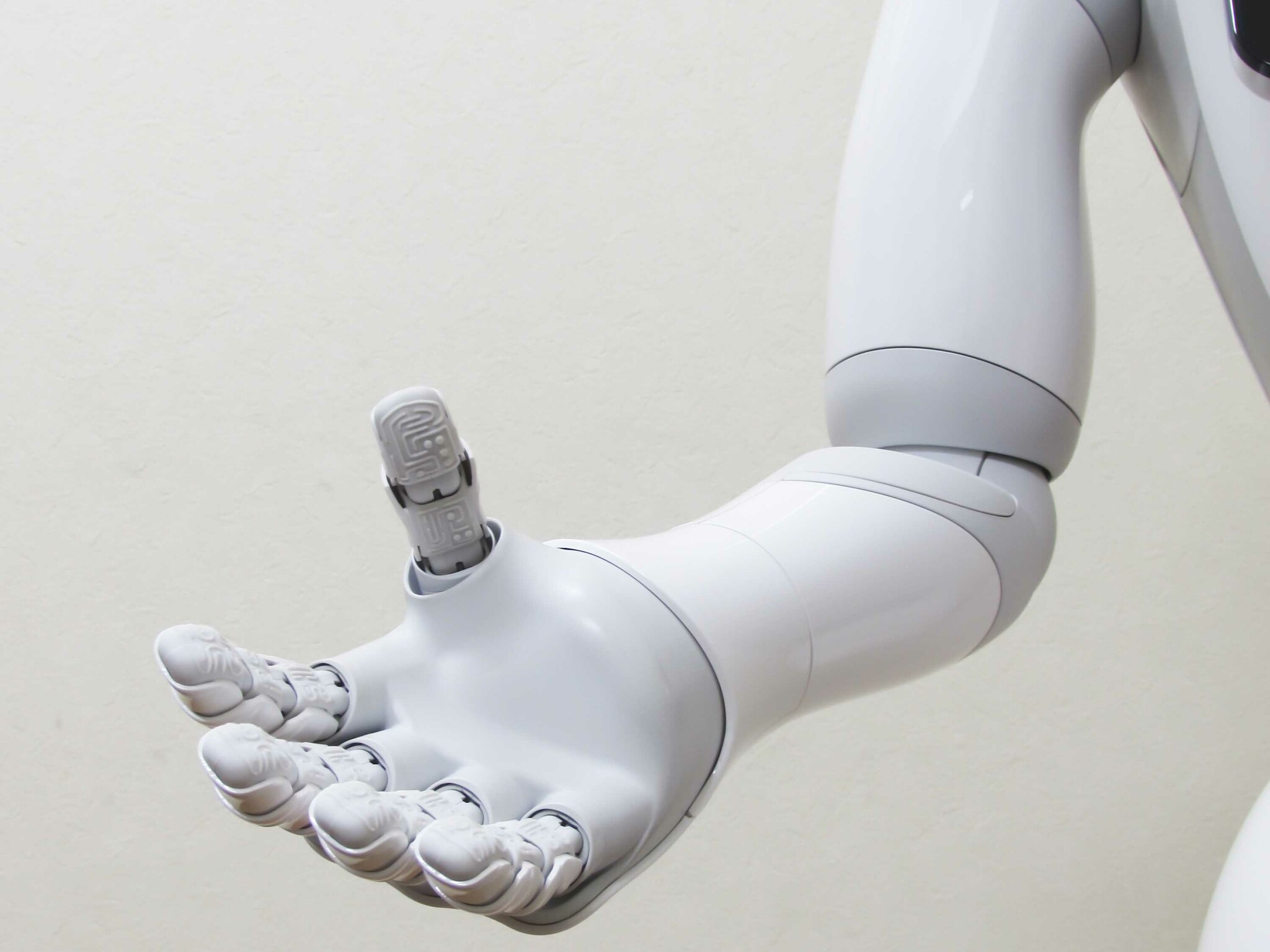
© VTT Studio / Adobe Stock
“What Use Is the Best Robot If No One Wants It?”
Sociologist Uwe Engel on society’s acceptance of artificial intelligence
An interdisciplinary project group from the Social Science Methods Centre at the University of Bremen has investigated how artificial intelligence will change our lives in the future using a representative survey. One result: Many people are skeptical of the use of robots and AI in their personal surroundings. How should research and development react to that?
Whilst I write this text from my office at home, Dusty – our robot vacuum cleaner – whirrs quietly across the living room floor and hoovers up dust, crumbs, and other dirt. It methodically covers the whole room. Entirely automatically. Service robots or virtual language assistants are already finding a place in homes and gardens. But Dusty and friends are just the beginning. Whether it is in a care home, an office, supermarket, or at the university: Robots and artificial intelligence (AI) are increasingly becoming a part of our daily life. They will soon be able to care for aged and fragile people, employ new colleagues, stock shelves, or teach school pupils or students.
“Artificial intelligence is seen as a technology of the future,” says Professor Uwe Engel, head of the Social Science Methods Centre at the University of Bremen since its foundation in 2007 until 2020. “It will enter into our society. ”Together with his team, he is investigating how artificial intelligence will change our lives. In order to do this, he carried out a representative survey of 216 Bremen citizens. Onecentral question was to clarify which social and ethical acceptance of AI and robots there is in varying areas of life.

© Matej Meza / Universität Bremen
Three Out of Four People Have aPositive Image of Robots
“Generally, three out of four people have a positive image of robots,” explains the sociologist, “and less than tenpercent doubt that robots are good and necessary for society. However, most of the survey participants are skeptical of robots in domestic settings, in care homes, or in educational and service sectors.” Instead, those people rather see robots being used in logistics, industry, space, and marine research. Engel states that people become warier of robots and AI, the closer they are in contact with them. According to the research, this correlation can be seen in the field of “care” in the survey. “Over half of the participants expect that humans and robots will share the care of patients in carehomes in the future.” When asked for their opinion on this 37 percent find the use of care robots to be “not so good” and 23 percent “not good at all.” If in doubt, the participants would rather accept assistant robots for themselves than for their relatives. “However,” emphasizes the sociologist, “when those who took part in the survey are actually personally affected by the subject of “care” and it thus becomes a relevant problem, the rate of acceptance of robot assistance decreases from around a third to a quarter and below.”

© quinlity / Adobe Stock
Lack of Trust in Ethical Principlesof Robots
One explanation: Communication plays an important role in day-to-day life. The results of the survey show that the prevailing opinion is that interhuman communication cannot be replaced by communication between humans and machines “regardless of how intelligent the machines are.” More important than people’s fear of unsafe, error-prone technology are their doubts that certain ethicalor normative standards are adhered to. Engel: “This became especially clear with regard to the ‘staff selection’ aspect. The idea behind it is that the initial screening of suitable employees should function automatically in the future.” The survey revealed the following: As soon as there were doubts that AI can effectively protect you against discrimination, the survey participants preferred humans to continue to make decisions pertaining to staff.
Key Words: Transparency and Education
The scientist was not surprised by the results. “We asked questions that relate to the year 2030. Thus, there cannot yet be any experience values.” He believes the results would be different if people had already had close contact with machines such as care robots. “The coming years will focus on the development of robots to be used in domestic settings and they will be extraordinarily important for acceptance. ”The question of acceptance of these new technologies is the central point for Professor Engel. “There is no doubt that AI and robots will be developed. This causes there to be pressure that these technologies are also accepted by society. What use is the best robot if no one wants it?” The matter of ethical and social acceptance should be of a “very high priority” for developers, he underscores. Engel asks that the public be greatly included in the research and development and also the discourse. “Those are the most reliable means to ensure that the technology will be accepted in the long-term.”Education is a further key word alongside transparency in order to increase the acceptance of robots and AI in home environments. “What we see regularly is that AI iscurrently a black box for many people – they are not exactly sure what it is.” Engel would welcome a training initiative for the general public in Germany. “We must explain what is behind the term AI and which intentions the algorithms have.” In my home there is a loud beeping: Dusty is finished and hasreturned to its station to recharge its batteries. I still have to empty the compartment with the collected dirt later though. It cannot do that on its own just yet.
Information on the Survey
The Social Science Methods Centre at the University of Bremen carried out two surveys under the title A Look intothe Future – How Artificial Intelligence (AI) Will Change our Lives (“Blick in dieZukunft – Wie künstliche Intelligenz (KI) das Leben verändern wird”). 297 people from the scientific and political sectors in Bremen and a representative sample of 216 residents of the Bremen region answered questions concerning varying future scenarios involving AI and robots. Scientists from the fields of robotics, cognitive sciences, computerscience, law, economics, and socialsciences were involved in the survey.